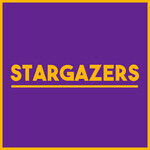We think of words as immutable — sturdy bricks with permanent meanings that we can interlock to build solid walls of clarity. Phrases such as "I give you my word" reflect our faith in unchanging definitions.
But in fact, words are more like brooks than bricks. They overflow, carve new channels, change their courses, reverse themselves, and sometimes even dry up. Tracing their twists and turns through the landscape of history can be fascinating.
The definitions of many words have been both naughty and nice. In fact, "naughty" once meant "nothing" and then meant "evil" before taking on its current definition of "mischievous." "Nice" meant everything from "foolish" to "lascivious" to "elegant" to "refined" before taking on its current denotation of "good, pleasant."
Some words completely reverse their meanings. "Egregious," derived from the Latin "ex-" (out of) and "greg" (herd), once bore a the positive denotation of "distinguished, eminent," literally, "standing out in the herd." But now it means "conspicuously bad, flagrant," as in "an egregious error."
Likewise, "garble" originally meant "to sift and select," denoting an act of clarification, but it now refers to an act of confusion. "Awful" once meant "full of awe, reverential," while "silly" referred to someone who was "blessed, happy, blissful."
Other words have narrowed in meaning. "Furniture," for instance, was once a general term for any resource — equipment, supplies, provisions, as in "the furniture of an army," while "girl" once meant a child of either gender, and "meat" once denoted any kind of food.
Similarly, "passenger" originally meant "someone who passes by" and referred to any kind of traveler, including pedestrians, but now it means people traveling in a vehicle, such as a car or airplane. "Angel" formerly denoted any messenger or functionary before it narrowed to mean "agent of God."
By contrast, some words have broadened their definitions over time. "Manufactured," from the Latin "manus" (hand) and "facere" (to make), once meant "made by hand," but now we use it to describe machine-made products as well.
The verb "desire" provides one of my favorite examples of expanding definitions. Derived from the Latin "de-" (from) and "sidus" (heavenly body), "desire" originally meant "to contemplate the stars," but it expanded — astronomically, you might say — to mean "to wish for anything under the heavens."
Rob Kyff, a teacher and writer in West Hartford, Conn., invites your language sightings. Send your reports of misuse and abuse, as well as examples of good writing, via e-mail to [email protected] or by regular mail to Rob Kyff, Creators Syndicate, 737 3rd Street, Hermosa Beach, CA 90254.






View Comments